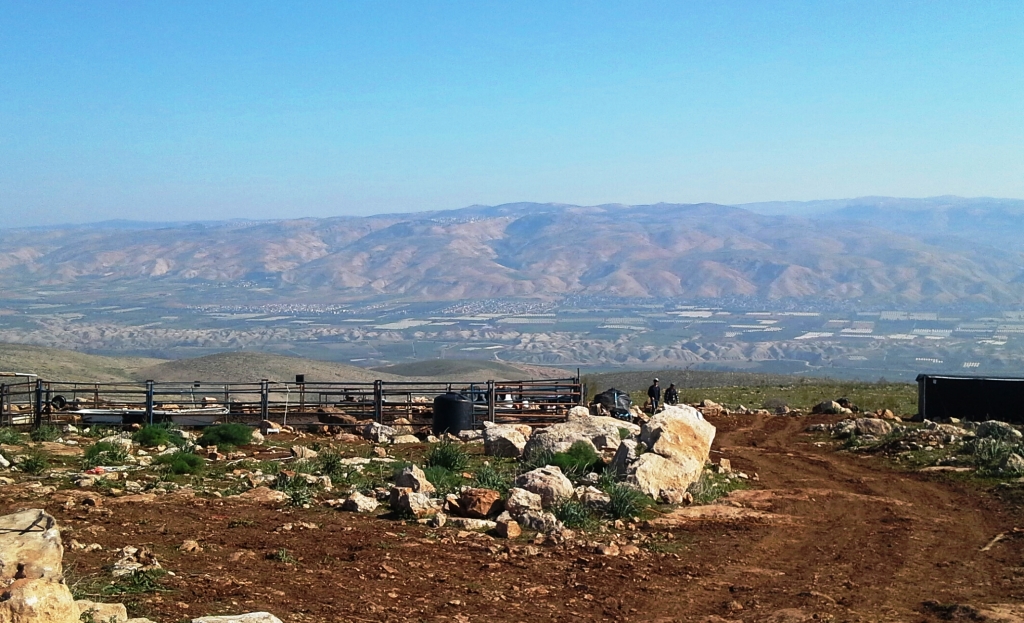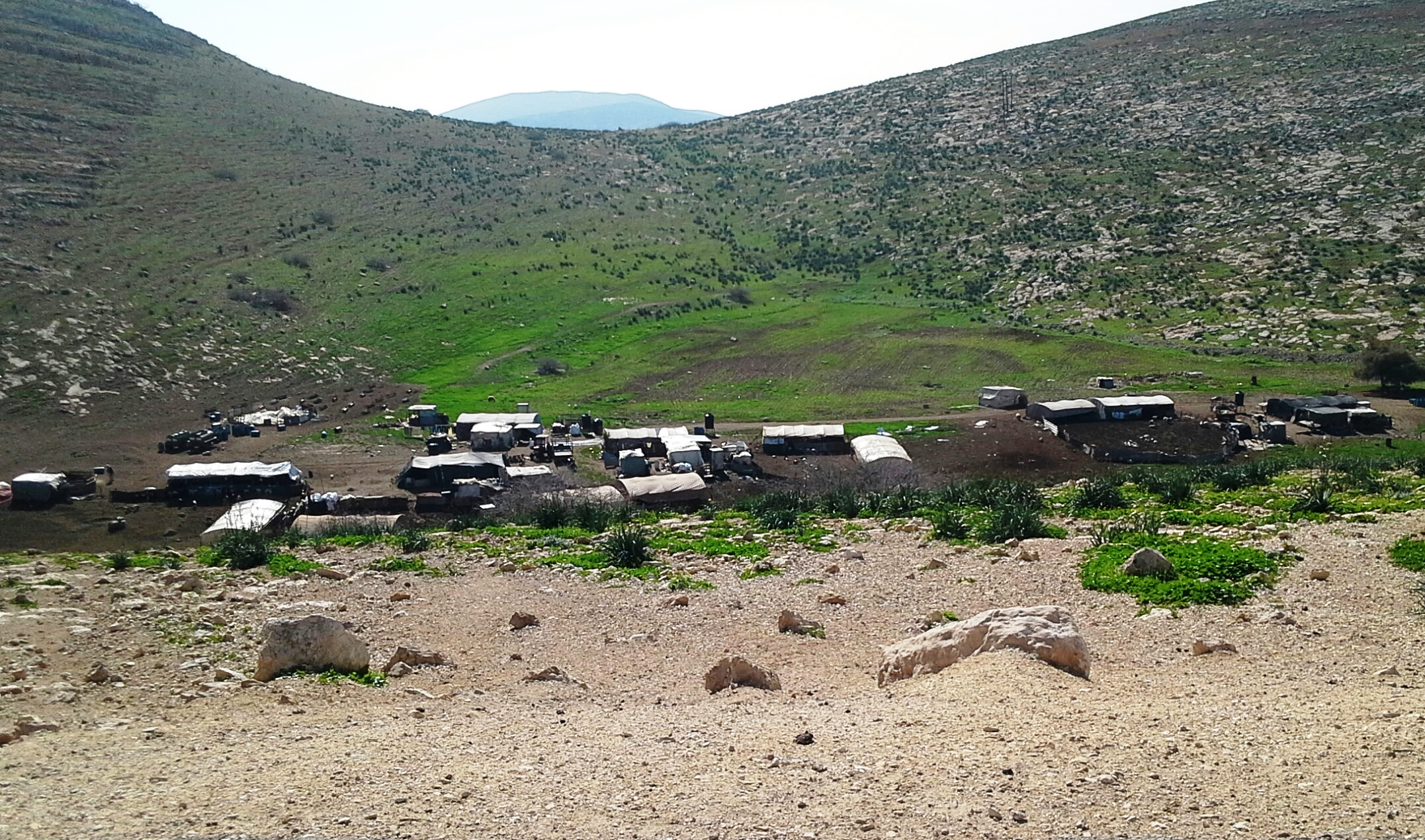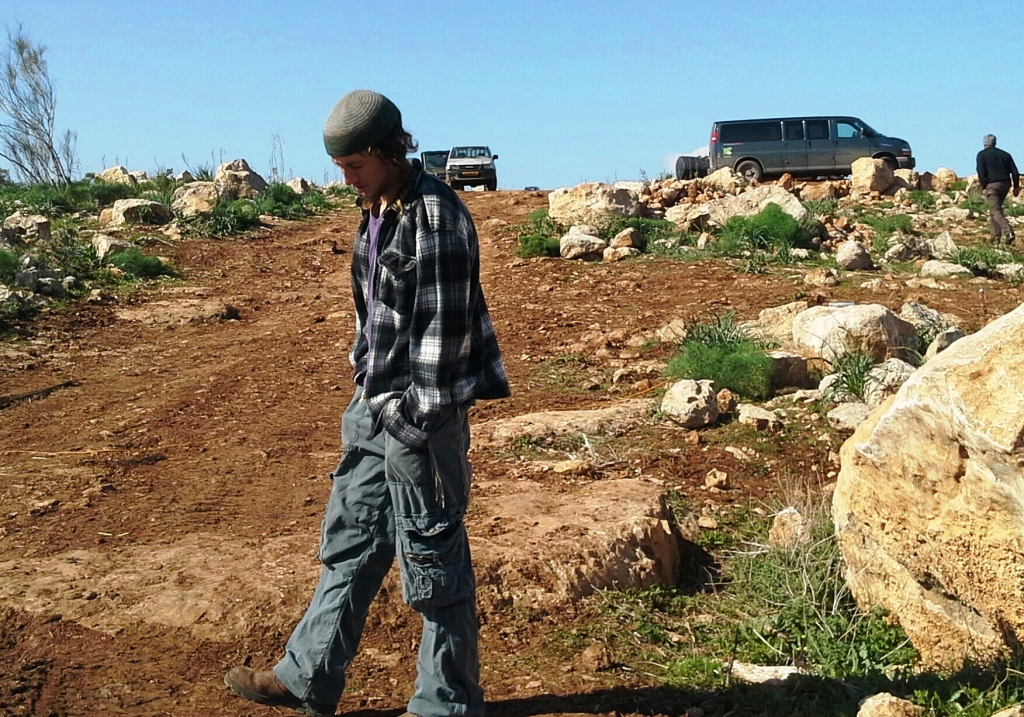The new Outpost in the Umm Zuka Nature Reserve

T.H

Umm Zuka nature reserve on January 5, 2017, and is
developing unimpeded


Since the outpost was first erected on January 5, 2017 we have been visiting and following its development. Since our last visit on January 15 another caravan and small shed have been added to the cattle corral. At the entrance 3 vehicles were parked, one of them a transit van. We saw the owner there with another person riding a mini-tractor downhill to the east.
At the entrance to the compound we met an armed soldier who exited the outpost towards the adjacent army base. We wonder what kind of relations have taken hold between the boys on the outpost and the soldiers ‘next door’ at the base, the sign of which proudly announces “Kfir Brigade Training Base, Netzach Yehuda Unit, ‘this is where victory begins’”.
We met 3 pre-enlistment-age boys. They invited us in for tea. We sat in the large tent that serves as a kitchen. They said that an adult couple live there, owning the place, and 7 boys like them, who are volunteer workers. They graze the flock. They have dropped out of yeshiva schools, grew up in settlements, and see this volunteering as the realization of their ideals about settling the land.
When we visited a Palestinian family at Samara nearby, we were told that the settlers chased off the family’s shepherds, threatening them with weapons. Since then the shepherds limit their grazing area so as not to run into the outpost flock again.
Two legal issues come up, I believe:
1. How can a cattle ranch be founded on a nature reserve, serving the settlers as grazing areas? The Palestinian shepherds are forbidden to graze in the same area, and whoever tried to do so was chased off and sustained heavy fines.
2. Who issues boys under 18 years of age weapons, as they certainly have no license to bear arms?
From our conversation with neighbors we learned that at least 40 dunams of the nature reserve are in fact privately owned land. The owner has tried to act on his ownership in the past and was fined 750 shekel, and only a legal procedure freed him of this fine. Still, he has been forbidden any use of his own land.
Another humanitarian organization active in the Palestinian Jordan Valley
Visiting a family at En Al Hilwa we met a man and a woman acting on behalf of an Italian organization – JVCITALIA. They have been engaged in this area for the past 3 years. The whole time we were there they were busy filling out forms for a survey they are conducting with every family. They said they also offer legal help and other aid in cases of damages by the army or settlers (home demolitions for example) – among other things with equipment for solar energy production. We mentioned to them several families whose solar plates have been dysfunctional and no one has helped them with repairs. They said they mean to help one of the families at Farisiya. Still, they could not be specific about whom they have helped so far. They have a website.
The problem of solar plates that have become dysfunctional
No doubt distribution of plates for the production of solar energy to the Bedouins in this region has significantly improved their living conditions, even if with a few kilowatts. The problem is that when this equipment becomes flawed there is no one to turn to for repairs. Whoever has grown used to electricity has a hard time giving it up. Guy of Taayush has so far tried to find a solution but not yet succeeded.
Visit in Fassail with Hajjar’s family
We came to Hajjar to tell her of the traffic accident that Tzviya has undergone, for they are friends – so she could understand why Tzviya has not visited lately. We saw and photographed the rubble of the last demolitions, of about half-a-year ago.
What we saw on the way:
This was the day on which the army was busy evacuating Amona settlement.
At Zaatara Junction there was scant traffic, no military acticity. At the Maale Efrayim and Hamra checkpoint, likewise.
At Yatma Junction people entering were inspected by soldiers.
The entrance to Akraba village has been open for some weeks now. The entrance to Jawarish has been blocked for over a year.
